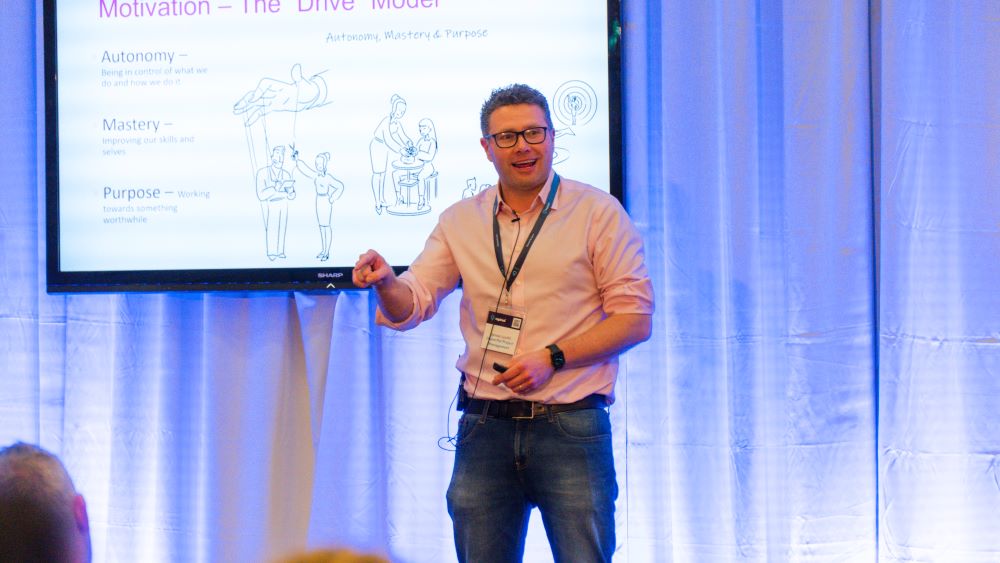When it comes to building resilient teams, John Cradden looks at effective management techniques for rapidly changing workplaces.
Recently we looked at adaptive leadership styles as a way of helping businesses better navigate increasingly complex and fast-changing political and economic environments. Being able to flex between different styles of leadership – such as hands-on, strategic and collaborative – in order to cope better with disruption and uncertainty is regarded as a valuable skill.
But it’s worth focusing more on the value of collaboration and teamwork in this context, particularly in how managers can foster resilience, psychological safety and high performance at times of constant change and challenges.
“Resilience and psychological safety are the bedrock of high performance when uncertainty strikes”
After all, while encouraging collaboration enables leaders to tap into the collective intelligence of their teams, and create an environment where people feel valued for their contributions, this won’t be enough if individuals are not given the freedom and psychological safety to make decisions and take more ownership of their work.
Research consistently shows that resilience and psychological safety are the bedrock of high performance when uncertainty strikes.
Teams that feel supported, trusted, and empowered can adapt quickly and innovate under pressure.
So how can managers achieve build resilient teams?
Psychological safety
Psychological safety is about creating a climate where members feel safe to take risks without fear of retribution or humiliation, and this is something that can be nurtured by admitting that you don’t have all the answers, responding sensitively to feedback, and normalising any mistakes made as learning opportunities.
Transparent communication
When things change rapidly, managers have a responsibility to engage in transparent, trust-building communication. Don’t be afraid to share what you know – but also what you don’t know. Create interactive, two-way channels such as Q&A sessions and digital messaging platforms. And when a big change or shift is made as a result of external influences, make sure you explain why it was made.
Flexible goal-setting
Just as leaders must adapt their styles to cope with fast-changing and complex circumstances, the same goes for team goals. Making plans at the start of a new year won’t work if external conditions shift after six months. Quarterly or monthly cycles will enable teams to respond more quickly.
Continuous feedback loops
Feedback regarding team performance used to be something that was done every quarter or every month, but sticking to these timelines takes away the capacity to resolve any tensions or issues within the team sooner rather than later.
Frequent check-ins or one-to-ones lets managers catch issues early and respond to them, but quick online surveys can also be helpful in detecting changes in staff morale or higher stress levels. Bringing teams together to review things can lead to deeper insights into what went well, what didn’t.
Building resilience through skill development
Managers should invest in skills that help teams weather shocks and become more resilient. For example, ensuring that staff can cover multiple roles if colleagues are absent or processes are disrupted is something that will appeal to many SMEs.
Likewise, adapting to technological change means upskilling in digital tools and AI, while stress-management training, learning to prioritise workloads, and improving time management will boost teams’ coping capacity. Enterprise Ireland and Skillnet Ireland offer numerous training supports in these areas.
Don’t neglect team wellbeing
Building resilient teams doesn’t mean cracking the whip and driving your people into the ground to achieve targets. By all means set high goals, but make sure they are achievable ones and that teams are adequately resourced. Encourage staff to recharge by making sure they all the annual leave that they’re entitled to, and build in some hybrid working flexibility if you can. And of course, take the time and effort to celebrate and recognise wins, even small ones.
-
Bank of Ireland is welcoming new customers every day – funding investments, working capital and expansions across multiple sectors. To learn more, click here
-
For support in challenging times, click here
-
Listen to the ThinkBusiness Podcast for business insights and inspiration. All episodes are here. You can also listen to the Podcast on:
-
Spotify
-
SoundCloud
-
Apple






